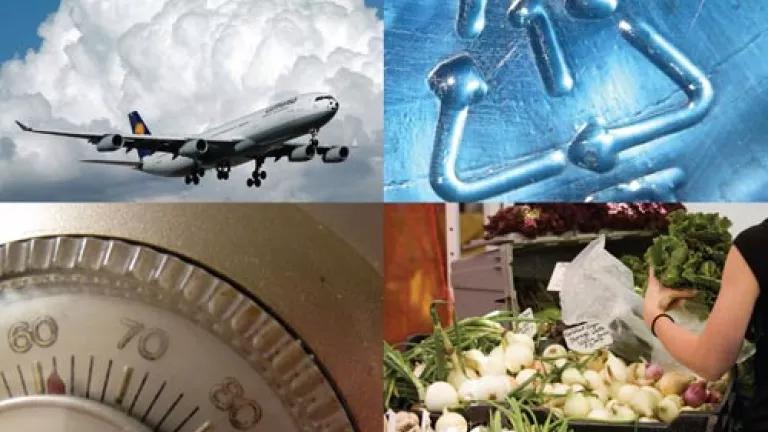
Waste is just that – a waste. A waste of time, money, and valuable resources, like food, clean water, fertile soil, or energy.
As pointless as waste is, and as much as we dislike it, it is all around us. We waste almost half the food we grow or raise. We waste more than half our energy through inefficiency, we waste three-quarters of our fuel in gas guzzlers, we waste water in our homes, our towns, our factories and farms. The list goes on and on.
None of this waste makes our lives better. It makes things measurably worse. Waste's corrosive effects reach beyond our own pocketbooks and into our communities, our nation, and the world at large. Wasting oil jeopardizes our national security. Wasting food creates social unrest. Wasting energy poisons our air and water and sickens our families.
The good news is that we can dramatically reduce waste without in any way lowering our standard of living. After all – it’s waste! We can stop waste at home and where we work or play or learn. Our towns can stop waste; our states and national government can stop waste. Our businesses can stop waste. Everyone can get in on the action.
Individual efforts can make a big difference to your own bottom line, and can have a ripple throughout your community as well. Once you start, say, turning off lights when you leave a room, you might get the idea to buy a motion sensor to save energy. Your friend sees it, likes it, and asks for it at the local hardware store. The store starts stocking lots of motion sensors, maybe adding some different brands. Soon, there are ripples going up the supply chain. Soon, you’re asking why your kid’s school doesn’t have motion sensors, and your individual action is creating change across your community.
We explored what might happen if every American took about a dozen pretty easy steps to reduce waste, and found it would reduce global warming pollution by a billion tons--the same effect as eliminating the carbon emissions of 200 million cars, or 200 coal-fired power plants.
If we recovered just 5 percent of the food we waste, we could feed 4 million Americans. We can save more oil than we currently import from the Gulf simply by making our cars more fuel-efficient. We already know how to construct green buildings that consume as much as 90 percent less energy than conventional ones.
Across the country, innovative solutions are being put in place to trim waste and boost efficiency, in ways that touch all of our lives. These efficient solutions are helping shore up bottom lines, save taxpayer money, create more attractive products, and make the most out of our valuable, and increasingly limited, natural resources.
Over the next few months, I’ll be highlighting smart ways to stop waste, as well as the people, towns, businesses and industries that are saving money and resources—and building success--through efficiency.
